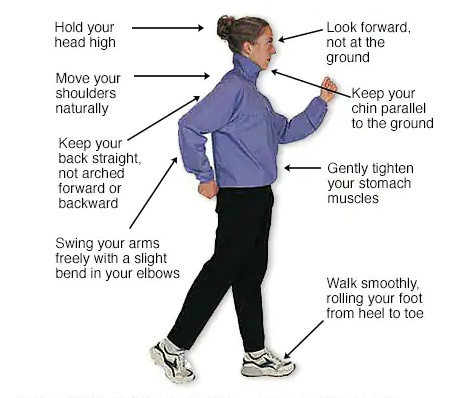As part of exploration into the relationship between daily steps and cardiovascular health, a recent study published in the Journal of Cardiovascular Development and Disease, reveals that increasing lifestyle walking by 3,000 steps per day reduces blood pressure in sedentary older adults with hypertension.
For those in the 68-to-78 age bracket facing elevated blood pressure, the magic number is an additional 3,000 steps, the studies say; warning, however, that its effectiveness for blood pressure control in older adults with hypertension is unknown.
Lead researcher and University of Connecticut Kinesiology professor, Linda Pescatello, sheds light on the prevalence of high blood pressure, stating, “If we live long enough, we might all get high blood pressure,” which is why the research delves into the potential of a daily stroll as a holistic and accessible solution to combat the common, yet concerning, health issue.
Co-author Duck-Chul Lee, an Iowa State University kinesiology professor, also emphasized the simplicity and universality of this intervention. He said, “It’s simple to perform, requires no special equipment, and can be done anytime, anywhere,” noting that the age group the study focuses on initially averages 4,000 daily steps, a demographic not known for their marathon runs.
By incorporating an extra 3,000 steps into daily routines, aligning with the American College of Sports Medicine’s recommendations, study participants witnessed a remarkable shift in their blood pressure readings.
To monitor their progress, each participant received a kit equipped with steps diaries, blood pressure monitors, and pedometers, transforming their daily stroll into a proactive health regimen.
The results were nothing short of astounding. Following the intervention, participants experience an average drop of seven points in systolic blood pressure and four points in diastolic blood pressure.
For those unfamiliar with the intricacies of blood pressure readings, these reductions are significant, carrying an associated 11 percent reduced risk of premature mortality from all causes and a 16 percent lower risk from heart-related causes.
Furthermore, an 18 percent lower risk of heart disease and a 36 percent lower risk stroke were also linked to these positive outcomes.
Elizabeth Lefferts, the first author of the study from Iowa state department of Kinesiology, expressed her amazement at the findings, stating, “It’s remarkable that a basic lifestyle modification can have the same impact as regimented exercise and certain medications.”
The implication of these results is comparable to those achievement through traditional blood pressure medications, highlighting the transformative potential of a simple daily habit.
Even more intriguingly, the study notes that participants already on medication for high blood pressure observed improvements in their systolic blood pressure by incorporating additional daily steps, which suggests that the remedy lies, not just in medications but in the fundamental lifestyle adjustment on incorporating more movements into daily routines.
As we negative the complexities of modern health, Lefferts said the study serves as a beacon of hope, showcasing the potency of a modest daily walk as a formidable ally against the looming threat of hypertension.
The kinesiologist said: “It is a testament to the fact that sometimes, the most effective solutions to our health challenges are right at our feet, waiting to be discovered one step at a time.”


